Strictly Personal
Naira: Comedy inside a tragedy, By Dakuku Peterside
Published
9 months agoon
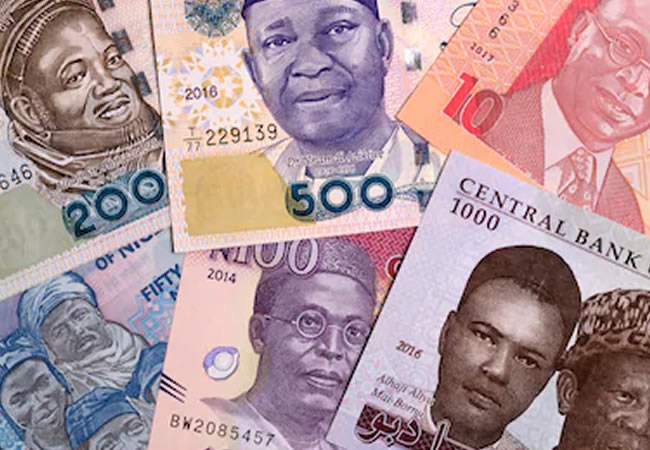
On Sunday, August 15, 1971, the United States economy was literally facing a firing squad. The Dollar was in a mess. Price gougers were everywhere, and foreign exchange was cruel to the Dollar. The newspaper headlines were full of scorn and ridicule, but President Richard Nixon did one thing. He faced the issue squarely.
“The strength of a nation’s currency is based on the strength of that nation’s economy,” he said. Nixon nipped the problem in the bud. Everything changed. He rescued his country from financial and social crises. Today, Nigeria is in a similar situation, albeit slightly dissimilar, given that the American economy is by far the strongest in the world. Thus, President Bola Tinubu needs to act in a manner that moves the nation from “Renewed Hope” to “Renewed Confidence”.
The loss of hope was what triggered the Arab Spring and other springs. In December 2010 in the town of Sidi Bouzid, Tunisia, Tarek El-Tayeb Bouazizi, a trader who had lost hope in the economy of his country set himself on fire. That act became a catalyst for countrywide protests. The protests included several men who emulated Bouazizi’s act of self-sacrifice. Hope is good. However, hope is not edible.
In Nigeria, there are reported and unreported suicide cases due to economic hardship in the country. A few weeks back, a woman who worked at a bank locked herself in the convenience of her company and swallowed poison, leaving behind a suicide note which points at her giving up on Nigeria.
With the free fall in the value of our currency, we are beginning to see more public expression of frustration. In the coming months, the unrelenting fall of the Naira could lead to an increased risk of suicide and even social unrest. In Kano State, where social unrest forms quickly, a group of local bakers warned the government about things to come. They protested the high cost of flour with a bag that sold N10,000 a few years ago now selling at N41,000. The Kano bakers cannot afford the price spiral and social unrest arising therefrom could pose additional risks to economic recovery and create setbacks with lasting impact on general economic performance.
For a government looking for an economic spark plug through Foreign Direct Investment, FDI, and business startups, the fall of the Naira and global jokes about it are downright depressing. The fall of Naira indeed poses grave dangers to the viability of businesses in Nigeria. Last August, Iyinoluwa Aboyeji, a young Nigerian celebrated all over the world for creating two unicorns and a general partner at early-stage venture capital firm, Future Africa, told Rest of World, an America-based publication, that his firm is advising its portfolio companies to explore business abroad to avoid Naira-related challenges.
Jokes about the Naira
Over the past two weeks, social media have been awash with hilarious jokes about the Naira. This is not restricted to Nigerians. First, a Toronto-based television station announced that Nigeria’s currency was now worth 0.0011 American Dollars. This was followed closely by a South African Prokerala showing that one Zimbabwean Dollar equals N2.77. In its February 2, 2024 edition, Bloomberg described the Naira as the worst-performing currency in the world. In their cartoon section, two US newspapers taunted Nigeria over the Naira. This is infinitesimal compared to the number of local jokes about the Naira in our media. Besides, social media has amplified the crash of the Naira to such an extent that Nigeria has literally and metaphorically become a laughing stock. Nigerians are either losing faith in the country or have lost a sense of patriotism.
These hilarious jokes and caricatures are a metaphor for a bigger problem.
There are genuine concerns that Nigeria may follow a similar trajectory to Zimbabwe and Venezuela. This concern is well-founded. The echoes of Zimbabwe ring eerily and loudly in Nigeria today. There are many reasons why history students could look back on the crash of the Naira and its impact on our reputation, global stature and the living standard of our people. This concern is heightened for many reasons. However, I will highlight only a few.
The first is poor policy articulation and implementation. Recall that the policy origin of the current Naira tumble can be traced to the simultaneous removal of subsidies and years’ long currency pegs last year by the current administration. This was done without considering other factors that need to be in place to make the economy function optimally. Nigerians are worried that our economy handlers are not doing enough to stem the decline.
The second is the damaged reputation of the country occasioned by the Naira crash and the ongoing economic and security instability. Local and foreign investors are losing confidence in the Nigerian economy because of high-level financial, economic and political instability.
The next is that the cost-of-living crisis escalates and inflation ravages the country. Prices of essential goods and services are going off the roof and people are perplexed at the rate of degeneration.
The fourth is that microeconomic indices are unfavourable given the reduction in demand for goods and services due to high prices and reduced supply. The latter itself is due to lack of production or high cost of importation.
Also, there are unfavourable macroeconomic indices such as escalation of unemployment. This correlates with a high crime rate, high inflation occasioned by a fall in the value of the Naira, banks’ inability to grant medium to long-term loans and general perception of impending economic catastrophe hovering over Nigeria like an ominous overcast.
The fifth is that wealthy Nigerians and other average citizens worried about the erosion of the value of their money and assets are converting them into Dollars or are moving their assets to dollar-denominated investments abroad to hedge for further loss.
Finally, the volatility of the Naira implies that fresh capital investments in infrastructure and power, mainly dependent on imported plants and machinery, shall be negatively impacted, leading to projects being put on hold.
How did we tumble in such a short time from a respectable nation to a butt of jokes? Not only amongst us but within the global community?
A brief historical odyssey on Naira volatility suffices. The tragic history dates back to 1983 when the Naira began its nosedive and successive governments have failed to ameliorate the plunge. In 1983, $1 was exchanged for about 72 Kobo. But the Naira fell to trade at about N9 to $1 by 1990. In 2000, $1 was exchanged for about N85 at the official window. In 2010, $1 was officially exchanged for about N150, but more at the notorious black market. By 2020, $1 was exchanged for about N360 at the official window. In recent years, the Naira has faced challenges related to external factors. These include fluctuations in oil prices, the global economic impact of the COVID-19 pandemic, and serial mismanagement.
A cursory look at this administration’s response to the Naira crisis shows an attitude of calm amidst the panic at the early stages of the free-floating of the Naira, as policymakers expected the fall in Naira. However, there were more panic reactions to this problem as the President and his economic team worked to stem the tidal wave blowing the Naira. Recently, we have seen monetary, fiscal and tax policy adjustments, and currency interventions to boost the Naira. Structural reforms by taking steps to diversify the economy to reduce dependency on a single sector and improving the business environment to attract foreign investment are ongoing. Unfortunately, these policies and actions have not stabilised the Naira in the short run. More needs to be done and quickly too. There is no one-size-fits-all solution, and a combination of strategies may be necessary.
Additionally, the success of these measures depends on practical implementation and the cooperation of various stakeholders. Investor confidence remains our greatest challenge. It is advisable for this administration to carefully analyse the specific economic conditions and consult with experts to tailor appropriate solutions for the country. Every good head, home and abroad must be brought into the room to stop us from remaining a butt of jokes. Saving the Naira is most important now and all stakeholders must work together to end this comedy show.
You may like
-


In 6 months, Nigerians spent over $2.38 million on medical tourism
-
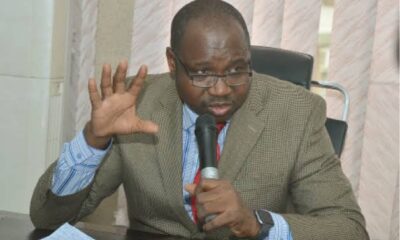

Nigeria confirms supplying 24-hr power to Togo, Benin, Niger
-


Nigerian govt imposes 5% tax on telecom, betting services
-


Nigerians will begin to see the fruits of Tinubu’s labour— CoS Gbajabiamila
-


AfDB to establish $100m investment bank for Nigerian youths
-


Binance launches mobile money payments for Crypto purchases in West, Central Africa
Strictly Personal
For EAC states to excel, members should hire expatriate ministers, By Joachim Buwembo
Published
2 weeks agoon
October 11, 2024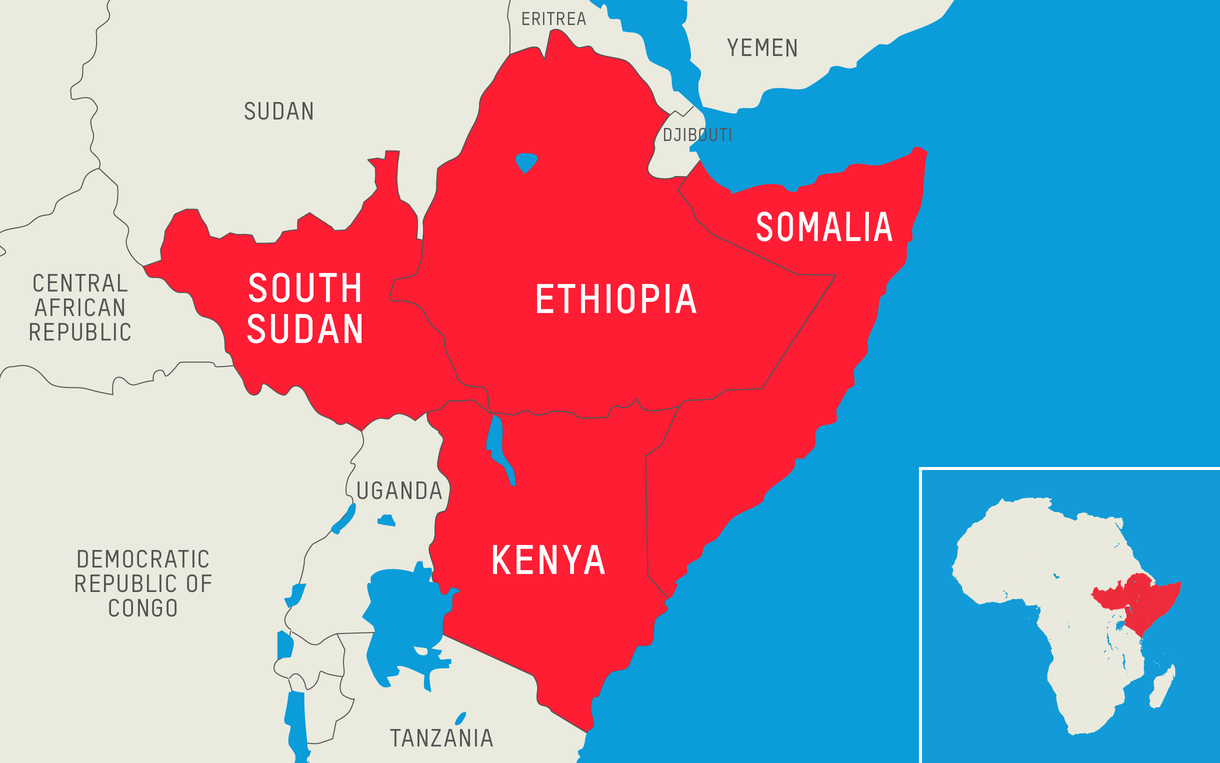
Next week, the East African Community, especially the original three members Kenya, Tanzania and Uganda, will be marking their revival Silver Jubilee, which is also an opportunity to reflect on 25 years after the passing of regional integration icon Mwalimu Julius Nyerere.
The integrationist and pro-federation Mwalimu would certainly be happy with the revival of the EAC. But how contented humanist Nyerere who committed his then poor country’s resources and lives to the emancipation of fellow Africans would be with the goings on in the region, can only be debated.
Hundreds of Tanzanian men and women at Nyerere’s command gave their lives so Ugandans would be saved from a dictatorship that attached low value to human life and “disappeared” political dissenters, with a few whose bodies were found having been disfigured sometimes with acid. In Kenya, extra-judicial executions of high-profile political dissenters were also being carried albeit with more sophistication than Uganda’s.
Should some people in Tanzania start derailing that lovely country backwards to catch up with the murderous Uganda and Kenya of the 1970s and criminalise the holding of different political views, then we would beg the EAC to find its manhood and insist that members start hiring expatriate ministers to man certain portfolios thus: For Justice and Law, expatriate ministers from the Scandinavian states would be preferable. But of course, beneficiaries of injustice and illegality would argue that ours are independent sovereign states; so to hell with protection of human lives.
For promotion of Trade and Tourism, expatriates from the United Arab Emirates would fit the bill. But of course, beneficiaries of poaching, smuggling and tax evasion would argue that ours are independent sovereign states; so to hell with expansion of trade and tourism.
For Industry, Indian expatriate ministers would do well to drive import substitution while creating millions of jobs in the region. But of course, beneficiaries of raw materials exportation and importation of consumer goods would oppose and argue that ours are independent sovereign states; so, to hell with the unemployed, human health and environmental protection.
For Finance and Economic Planning, Singaporean expatriate ministers would be appropriate, but of course beneficiaries of grand corruption and incompetence would argue passionately that ours are independent states; so let the taxes be stolen so the awful service delivery gets even worse while debilitating debts mount.
For Transport Infrastructure, expatriate ministers from the Netherlands would be suitable because integrated systems of air, rail, road and water were needed by yesterday, so that transport ceases being an obstacle and becomes an enabler of development instead.
But of course, beneficiaries dominant, inefficient transport modes will argue that we are independent, sovereign states; so let primitive transport systems and fragmented airspaces remain and keep the cost of living and doing business up.
For Energy, Japanese expatriate ministers would do the job to speedily guide our economies through the energy transition, and transfer technology like Chinese have done in Uganda to create local capacity to make electric vehicles.
But to drastically reduce reliance on fossil fuels some countries should consider hiring Ethiopian expatriate ministers who will know best how to say enough is enough, switch from internal combustion engines to electric.
US expatriate ministers can also be considered to help the adaptation of our aviation sectors to sustainable biofuel in addition to driving the processing of rare earth minerals into e-mobility batteries.
But profiteers from the poisoned fossil fuels would say we are independent and sovereign; so let fuel import bills remain high and the peoples’ health be damaged.
The all-important Education sector should without doubt be entrusted to expatriate ministers from Finland for wholesome development of our children.
But of course, the beneficiaries of the extortionist private schools and the cripplingly looted public institutions would argue that these are sovereign independent states; so let the children continue getting mentally stunted and unemployable.
And in Health, of course, the expatriate ministers should be from Sweden, to ensure that everyone accesses adequate health services. Expectedly, beneficiaries of public funds to secure treatment abroad and those who benefit from stolen medical supplies would argue that ours are independent sovereign states; so that the wanton deaths of children and mothers continue.
Give the Housing to expatriate Chinese ministers so we close the era of human beings living in pigsties. However, those who benefit from a disorganised, stunted housing sector would argue that we are independent sovereign states so the majority can continue living sub-humanly.
Joachim Buwembo is a Kampala based journalist. buwembo@gmail.com
Strictly Personal
Tanzania, we need to talk, By Othman Masoud Othman
Published
3 weeks agoon
October 4, 2024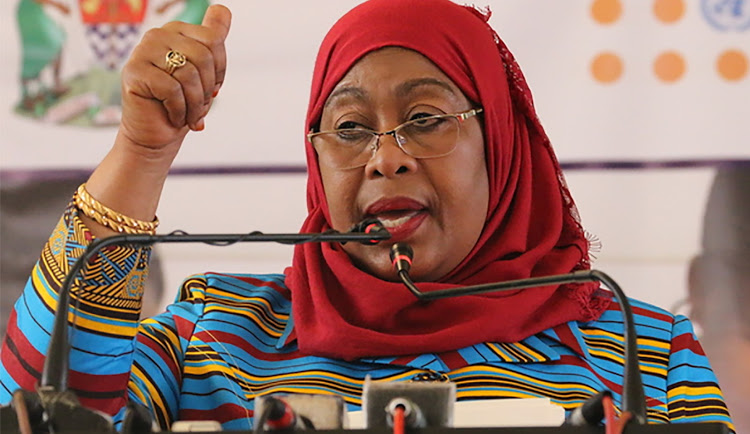
The ACT-Wazalendo party has been closely following and monitoring political events in the United Republic of Tanzania which, if not attended to urgently, might lead our country into an abyss.
In the six years of the presidency of John Pombe Magufuli, the country suffered a lot. There were claims of narrowing of the democratic space, the right to assemble and the right to free speech.
After the death of President Magufuli and Samia Suluhu Hassan assumed power, there was a sign of hope. The public optimistically welcomed the 4Rs (Reconciliation, Rebuild, Reforms, Reunite). Several positive measures were taken, including the formation of a special task force, which involved members from political parties, academic institutions, the private sector, and civil society. The team came up with many measures to be undertaken: Reform of political parties and elections laws, and the enacting of a new constitution. The President went further to investigate the problems around the criminal justice system and how to solve them.
It is one year to the next general election expected in October 2025, but there is a lot of pessimism, as not enough measures have been taken as promised. Even though the Elections Act was reviewed and the Electoral Commission renamed the Independent Electoral Commission, there is a lot to be done, including writing a new constitution and implementing the proposed reforms to the criminal justice system.
recently, there have been cases of abductions and disappearances of some activists and politicians. The situation got tense after a leader of Chadema, Ali Mohamed Kibao, was abducted and later found dead. Chadema accused the government security forces of these events and called for independent investigations. President Samia also condemned the abductions and ordered investigations.
Chadema also called for peaceful protests, demanding accountability and the police banned the demonstrations.
These happenings are a sign of uncertainty towards the general election, starting with the civic elections expected next month.
We urge the Chadema to reconsider demonstrations in the country. Human rights abuses are not just morally wrong, they are short-sighted. Human rights are a sound investment. They build resilient and prosperous communities and strong institutions based on the rule of law.
We, as a party, believe that our country has people full of wisdom and religious leaders who can guide our country back to the right track.
We urge all sides of the political divide to cool down. We believe that all players have reasonable demands and the failure to listen to each other has led us where we are as a country.
We urge the government to quickly initiate dialogue involving political leaders, the police, religious leaders and other stakeholders in order to bring sanity back to our country.
Our party leaders are engaging in talks between the government and other political parties to find solutions. We urge all the citizens of Tanzania to be united on this to build a better future. we believe that this is the time to talk.
Othman Masoud Othman is the First Vice President of Zanzibar and National Chairperson, of ACT-Wazalendo.
EDITOR’S PICK
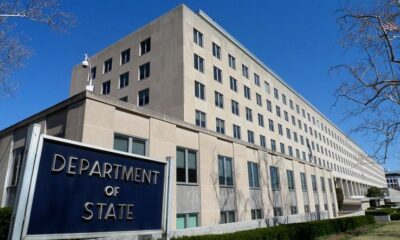

US requests probe into murders of two Mozambique opposition figures
The United States administration denounced the weekend deaths of two Mozambique opposition members, demanding a prompt and comprehensive inquiry ahead...


Sudanese army reports first RSF commander defection
Sudan’s army announced on Sunday that a Rapid Support Forces commander had defected with some of his troops, the first...
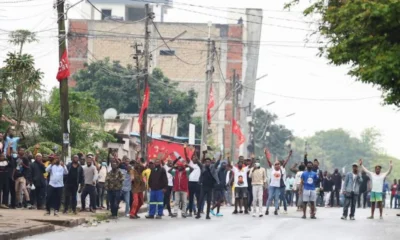

Opposition demonstrators, police clash in Mozambique after contentious election
Police in Mozambique fired teargas and bullets at protesters in Maputo on Monday, following the shooting of two opposition party...


South Africa succumbs to New Zealand in T20 World Cup final
After a fairytale run to the final of the Women’s T20 World Cup in Dubai, South Africa succumbed to New...


Algeria accuses renowned Singer Cheb Khaled of spying for Morocco
Algerian authorities have accused renowned musician, singer and songwriter, Cheb Khaled, of spying for neighbours Morocco as another wave of...


Rwanda’s e-mobiility startup IZI expands electric bus fleet after getting grant from Green Fund
Rwanda’s e-mobility startup, IZI, has announced the delivery of five electric buses to Kigali, the country’s capital city, after obtaining...
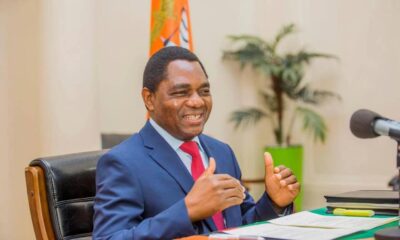

Zambia: President Hichilema sacks three Constitutional Court judges
Zambian President, Hakainde Hichilema, has finally sacked three Constitutional Court judges whom he had earlier placed on suspension. The affected...


In 6 months, Nigerians spent over $2.38 million on medical tourism
According to a recent report, Nigerians spent over $2.38 million on international healthcare services between January and June 2024. The...


Nigeria confirms supplying 24-hr power to Togo, Benin, Niger
Despite its inability to provide steady electricity for Nigerians amid regular collapse of the national grid, Nigeria’s electricity regulatory body,...


Egypt reduces 2040 renewable energy target to 40%, prioritises natural gas
Petroleum Minister Karim Badawi announced on Sunday that Egypt had reduced its 2040 renewable energy target down from a previous...
Trending
-

 Metro2 days ago
Metro2 days agoNigeria confirms supplying 24-hr power to Togo, Benin, Niger
-

 Sports1 day ago
Sports1 day agoSouth Africa succumbs to New Zealand in T20 World Cup final
-

 Musings From Abroad2 days ago
Musings From Abroad2 days agoIn 6 months, Nigerians spent over $2.38 million on medical tourism
-

 Metro1 day ago
Metro1 day agoZambia: President Hichilema sacks three Constitutional Court judges


